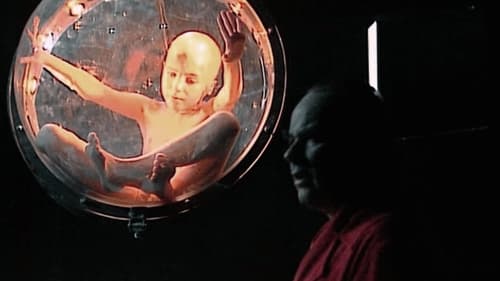Peter Stein
Рождение : 1937-10-01, Berlin, Germany
История
Peter Stein (born October 1, 1937) is a critically acclaimed German theatre and opera director who established himself at the Schaubühne am Lehniner Platz, a company that he brought to the forefront of German theatre.[1]
Born in Berlin, Stein grew up in an era defined by the Nazis. His father Herbert Stein was factory director of Alfred Teves, a motorcycle manufacturing firm that the Nazi regime employed to make automotive parts. Herbert was in charge of 250,000 forced laborers. He was also involved in the Confessing Church, a resistance group.

Director
Accompanied by a luxurious team of professionals, consisting of the renowned stage director Peter Stein, his stage designer Ferdinand Wöger and conductor Ádám Fischer, Teatro alla Scala presents with Mozarts Zauberflöte a production where orchestra, chorus, soloists as well as outfitters all consisted of students of the Academia Teatro alla Scala, the educational institution aimed to train the young talents, founded by the Teatro alla Scala in 2001. The result was more than stunning and an instant success with the audience of the ten sold out performances at La Scala, which is famous for its more than critical loggionisti. According to Die Presse, Fischer gets the best out of the Academy Orchestra with delicate execution and humane phrasing while the Frankfurter Allgemeine Zeitung praises Fatma Said as "Pamina" and Yasmin Özkan as "Queen of the Night".

Director
Any performance of Giuseppe Verdi’s Aida at La Scala, Milan, is guaranteed to be an experience – but, when it’s a new production, it becomes a major event, especially given the theatre’s notoriously critical audience. Legendary stage director Peter Stein succeeds in delivering a lucid production acclaimed in equal measure by the press and public: “a perfect coup de théâtre” (Giornale della musica). A “stellar cast” (La Stampa) contributes to the production’s success under the musical direction of Verdi specialist Zubin Mehta, who leads the orchestra in a “gorgeously colourful performance”, while “the entire ensemble is brilliant in its portrayal of the characters” (Die Presse).

Director
Fierrabras of 1823 is the last of Franz Schubert’s stage works. Rarely performed to this day, this heroic-romantic opera has now been staged for the first time ever at the Salzburg Festival by famous director Peter Stein. Based on an old French 12th-century epic, the plot depicts the military conflict between Christians and Moors at the time of Charlemagne – as a backdrop to stories of love and friendship that prove to be stronger than war and hatred of otherness. The strong cast includes the “marvellously expressive miracle Dorothea Röschmann” (Die Zeit) and “Michael Schade, who exudes his exceptional tenor in Fierrabras’s heroic arias” (Der neue Merker). Under the energetic baton of lngo Metzmacher, the Vienna Philharmonic unfold “the melos, the poetry, the sweetness and the dramatic force of Schubert’s highly refined and atmospheric sound worlds” (Kleine Zeitung) in highly romantic fashion.

Director
Verdi wrote this five act opera with a French Libretto for the Paris opera. Premiere 1867. Then there are three versions of this opera, the French 1867 version, the revised Italian four Act Don Carlo 1884, plus the Modena version 1886. This version is the 1884 version with Act One reinstated, as well as the original beginning of Act 2. To complicate matters the French opera was simply translated into Italian, and then the changes were made. There is an even newer edition completed in 1980 by Ricordi, and others floating around as well.

Director
One of the lesser known works by Giuseppe Verdi, Simon Boccanegra is regarded by most opera lovers as one of his finest. The action takes place in the 14th century and deals with the political and personal rivalry between the corsair Simon Boccanegra, who has been elected Doge of Genoa with the help of the plebeian vote, and the local nobleman, Jacopo Fiesco. Arthaus presents a visually alert, musically sensitive and disturbingly coherent (Der Standard) production of the piece on DVD. The staging was directed by one of the giants of the European theatre, Peter Stein. His fondness for atmospherically dense spaces in which the characters can fully develop is particularly well brought out in his Vienna production, not least because he had at his disposal two remarkable singing actors for the principal male roles, Thomas Hampson and Ferruccio Furlanetto.

Director
Giuseppe Verdi's one prologue, three act opera featuring libretto by Francesco Maria Piave and Arrigo Boito is performed before a live audience at Florence's Teatro Comunale in this release featuring the music of the Orchestra and Chorus of the Maggio Musicale Fiorentino under conductor Claudio Abbado, and starring Carlo Guelfi, Julian Konstantinov, and Karita Mattila.

Stage Director
Second part of Goethe's Tragedy

Director

Stage Director
Pelléas et Mélisande (Pelléas and Mélisande) is an opera in five acts with music by Claude Debussy. The French libretto was adapted from Maurice Maeterlinck's Symbolist play Pelléas et Mélisande. It premiered at the Opéra-Comique in Paris on 30 April 1902 with Jean Périer as Pelléas and Mary Garden as Mélisande in a performance conducted by André Messager, who was instrumental in getting the Opéra-Comique to stage the work. The only opera Debussy ever completed, it is considered a landmark in 20th-century music.

Lighting Design
'Otello' by Giuseppe Verdi , Welsh National Opera, 1987, directed by Peter Stein

Stage Director
'Otello' by Giuseppe Verdi , Welsh National Opera, 1987, directed by Peter Stein



